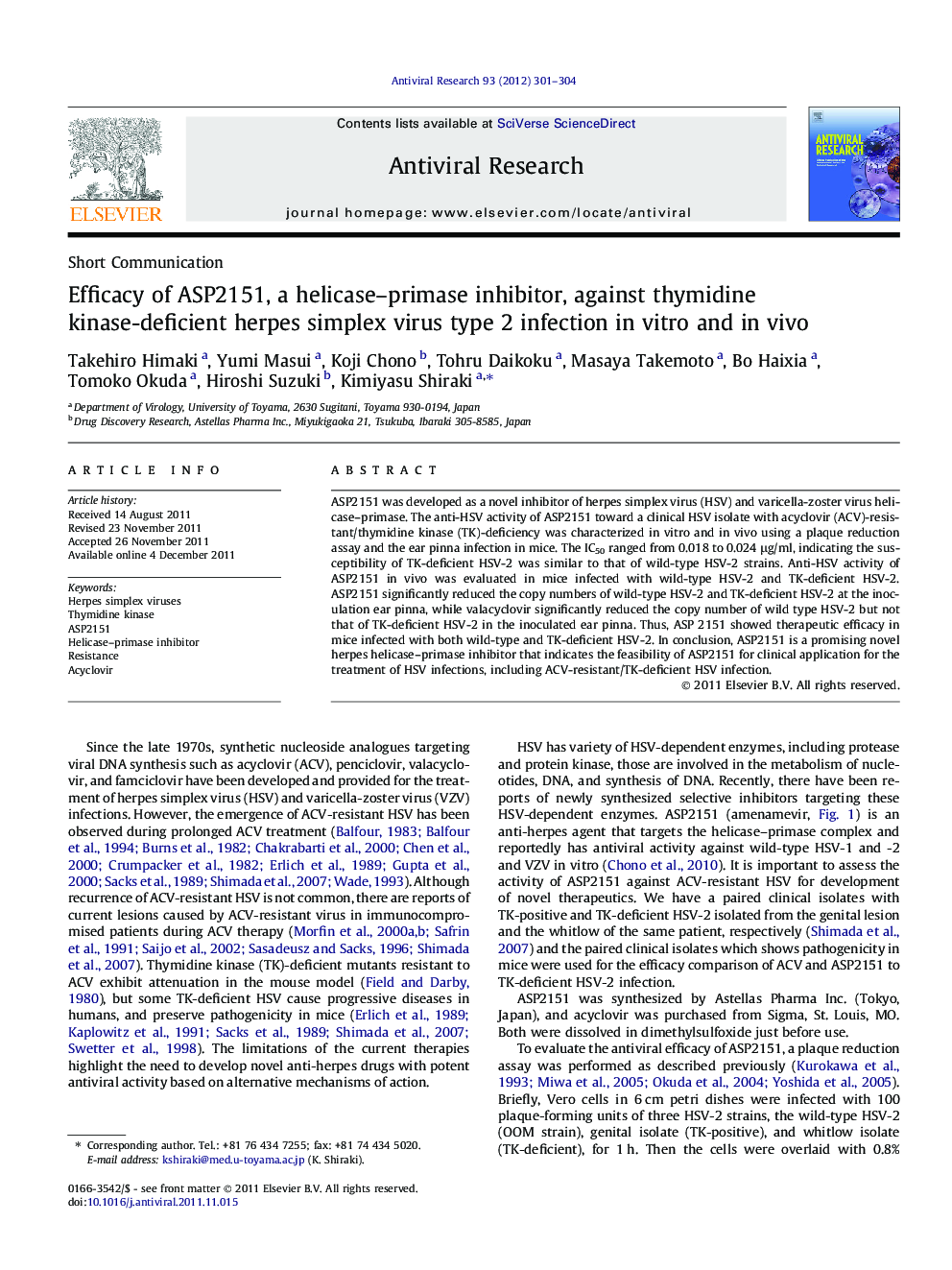| Article ID | Journal | Published Year | Pages | File Type |
|---|---|---|---|---|
| 2510156 | Antiviral Research | 2012 | 4 Pages |
ASP2151 was developed as a novel inhibitor of herpes simplex virus (HSV) and varicella-zoster virus helicase–primase. The anti-HSV activity of ASP2151 toward a clinical HSV isolate with acyclovir (ACV)-resistant/thymidine kinase (TK)-deficiency was characterized in vitro and in vivo using a plaque reduction assay and the ear pinna infection in mice. The IC50 ranged from 0.018 to 0.024 μg/ml, indicating the susceptibility of TK-deficient HSV-2 was similar to that of wild-type HSV-2 strains. Anti-HSV activity of ASP2151 in vivo was evaluated in mice infected with wild-type HSV-2 and TK-deficient HSV-2. ASP2151 significantly reduced the copy numbers of wild-type HSV-2 and TK-deficient HSV-2 at the inoculation ear pinna, while valacyclovir significantly reduced the copy number of wild type HSV-2 but not that of TK-deficient HSV-2 in the inoculated ear pinna. Thus, ASP 2151 showed therapeutic efficacy in mice infected with both wild-type and TK-deficient HSV-2. In conclusion, ASP2151 is a promising novel herpes helicase–primase inhibitor that indicates the feasibility of ASP2151 for clinical application for the treatment of HSV infections, including ACV-resistant/TK-deficient HSV infection.
► A helicase–primase inhibitor of herpes virus, ASP2151, was characterized. ► ASP2151 showed anti-HSV activity in vitro and in vivo. ► ASP2151 inhibited the growth of acyclovir-resistant/TK-deficient HSV. ► ASP2151 showed therapeutic efficacy against TK-deficient HSV-2 infection in mice.
